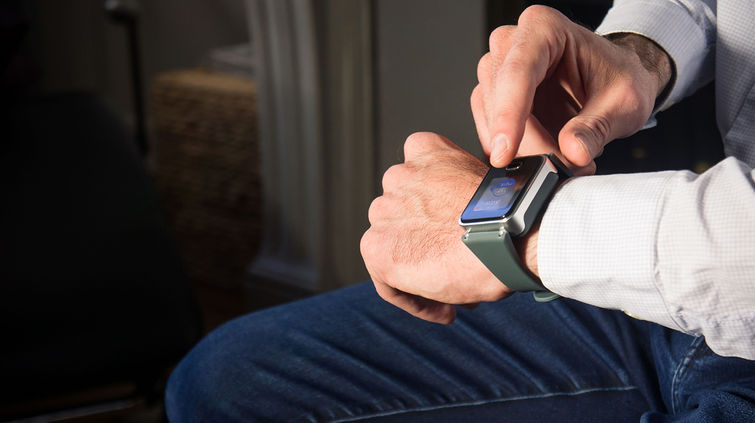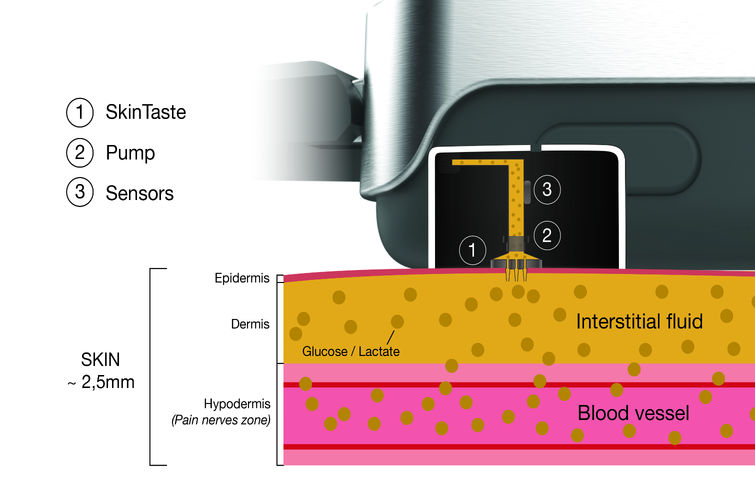Wearable That 'Tastes' Skin Could Help Diabetics and Athletes

Diabetics and athletes alike could soon be able to test their blood sugar and lactic acid levels to measure those health stats with a wrist-worn device that can virtually "taste" through the skin, according to device maker PKvitality. The company's $149 K'track Glucose wrist-worn tracker absorbs fluid that contains those chemicals through the underside of the device.
The benefit for diabetics is that they'll no longer have to endure finger pricks when they need to check their blood sugar levels. Plus, they could save money on testing strips needed to test blood sugar levels using traditional glucose monitoring methods.
MORE: Best Fitness Tracker - Top-Rated Activity Trackers
That doesn't mean nothing will penetrate the skin, however. Instead of one sometimes-painful prick, the K'track inserts tiny micro-needles less than half a millimeter in diameter slightly past a user's outer layer of skin. Fluid is absorbed from just under that outer layer and soaked up through the device and sent to sensors that identify glucose levels. Paired with K'track app for Android or iOS devices, users will be able to track their glucose levels over time.

For athletes, a separate $199 K’Track Athlete wearable detects lactic acid levels, which indicate how well the body is responding to workouts and and how long an athlete should allow for recovery after intense exertion, PKvitality explains. Since the device is a wearable, athletes won't have to stop their workout to measure lactic acid levels.
While the technology is novel and could make life easier for both diabetics and athletes, it's unclear whether PKvitality's K'track devices will make it into the hands of consumers. The company is still awaiting clearance from health regulators to sell its devices.
Originally published on Tom's Guide.
Sign up for the Live Science daily newsletter now
Get the world’s most fascinating discoveries delivered straight to your inbox.










